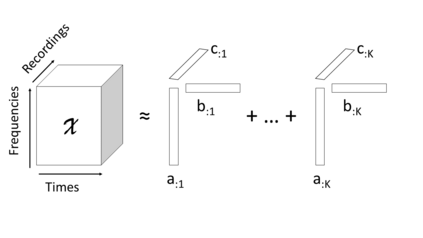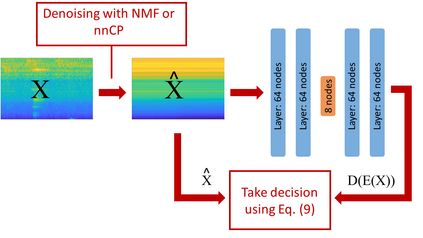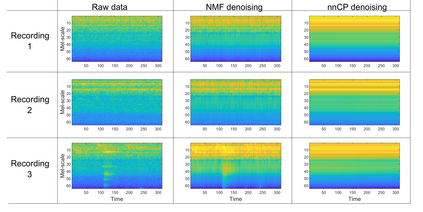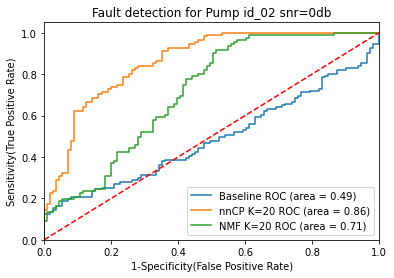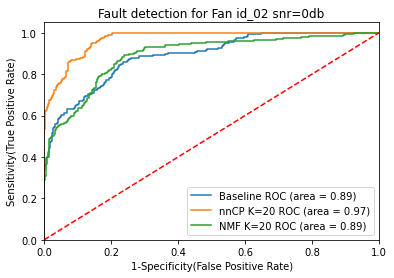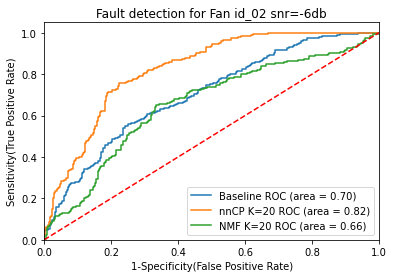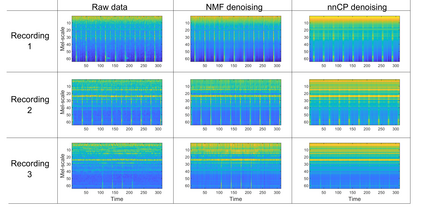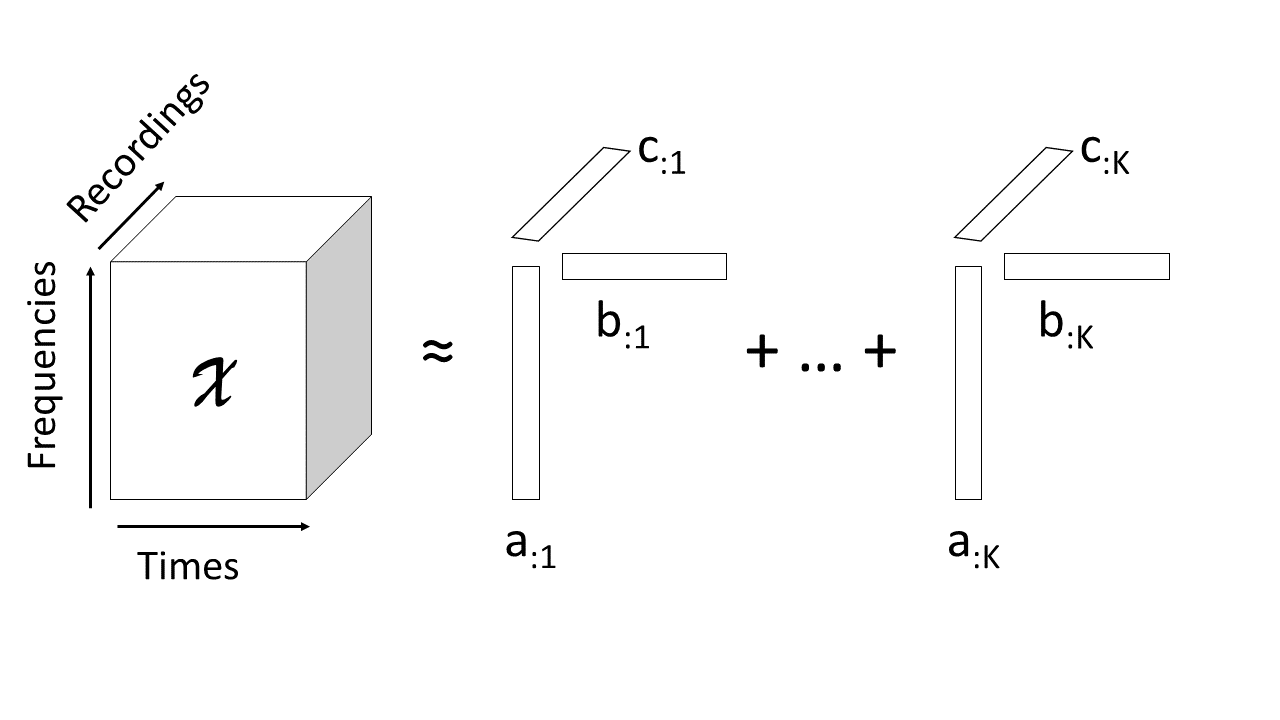Acoustic monitoring for machine fault detection is a recent and expanding research path that has already provided promising results for industries. However, it is impossible to collect enough data to learn all types of faults from a machine. Thus, new algorithms, trained using data from healthy conditions only, were developed to perform unsupervised anomaly detection. A key issue in the development of these algorithms is the noise in the signals, as it impacts the anomaly detection performance. In this work, we propose a powerful data-driven and quasi non-parametric denoising strategy for spectral data based on a tensor decomposition: the Non-negative Canonical Polyadic (CP) decomposition. This method is particularly adapted for machine emitting stationary sound. We demonstrate in a case study, the Malfunctioning Industrial Machine Investigation and Inspection (MIMII) baseline, how the use of our denoising strategy leads to a sensible improvement of the unsupervised anomaly detection. Such approaches are capable to make sound-based monitoring of industrial processes more reliable.
翻译:对机器故障检测的声学监测是最近和不断扩大的研究路径,已经为各行业提供了有希望的结果。然而,无法收集足够的数据从机器中了解所有类型的故障。因此,开发了仅使用健康条件下的数据而经过培训的新算法,以进行不受监督的异常检测。这些算法开发的一个关键问题是信号中的噪音,因为它影响到异常检测的性能。在这项工作中,我们提议了一种强大的数据驱动和准非参数的光谱数据分解战略,其基础是:无负分解:非阴性加拿大聚变(CP)分解。这种方法特别适用于机器发射的静态声音。我们在一项案例研究中展示了功能不良的工业机器调查和检查(MIMII)基线,即我们解析战略的使用如何导致合理改进非超强的异常检测。这些方法能够使对工业过程的可靠监测更加可靠。

